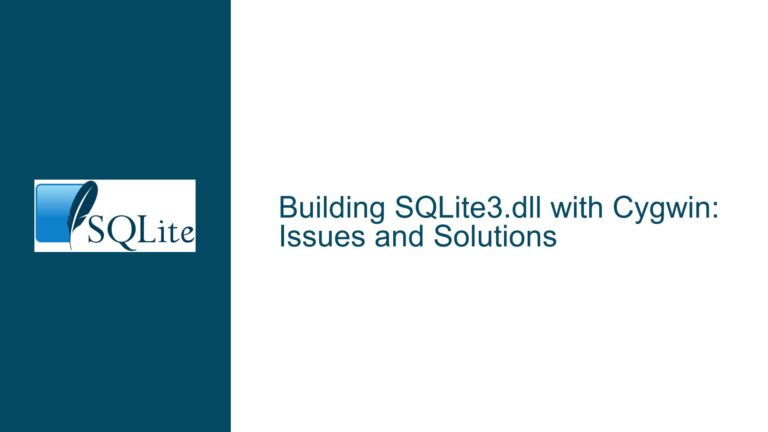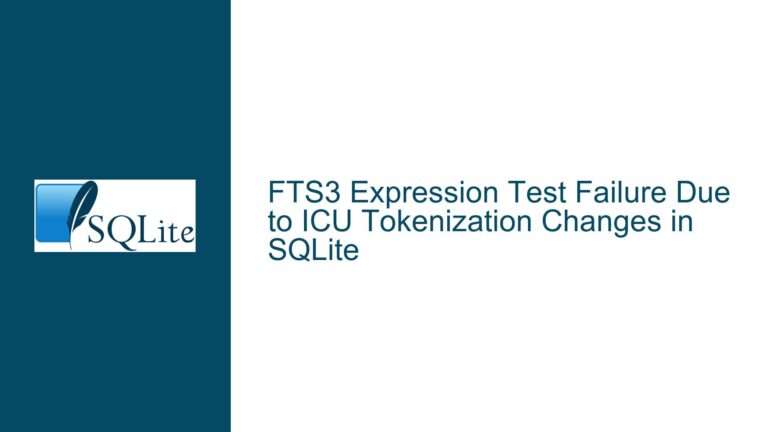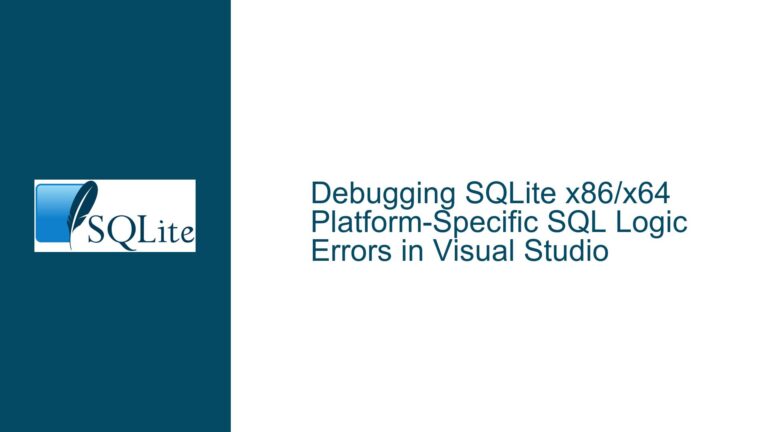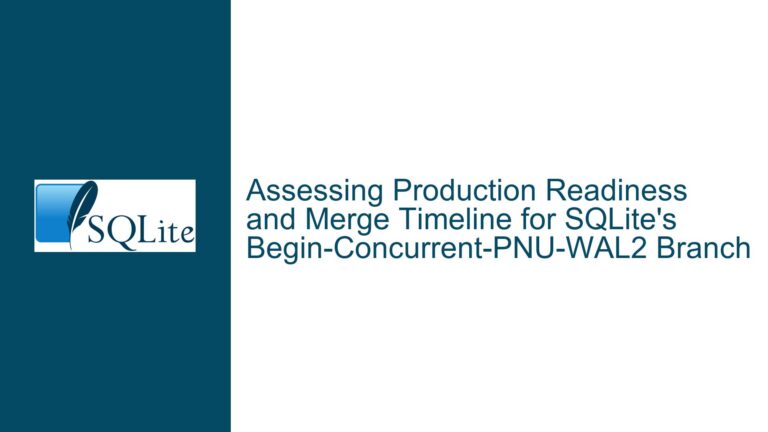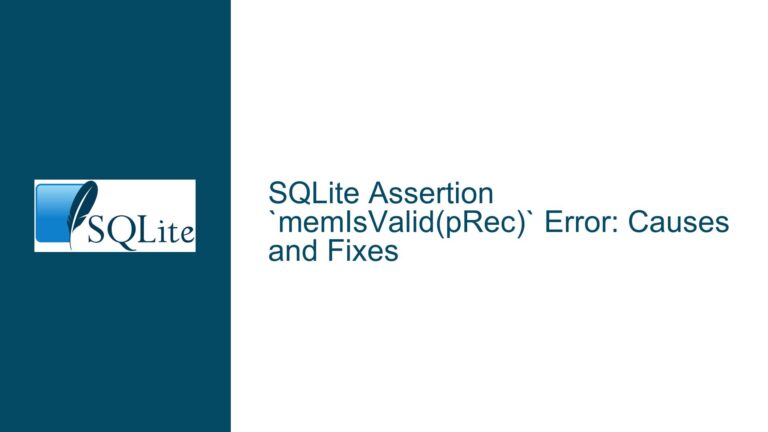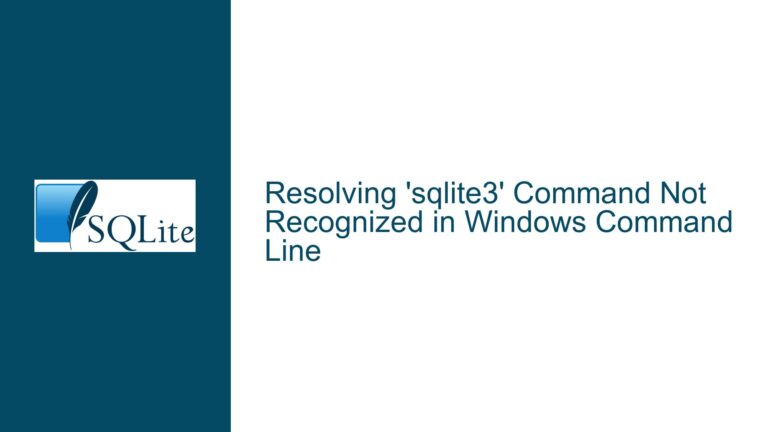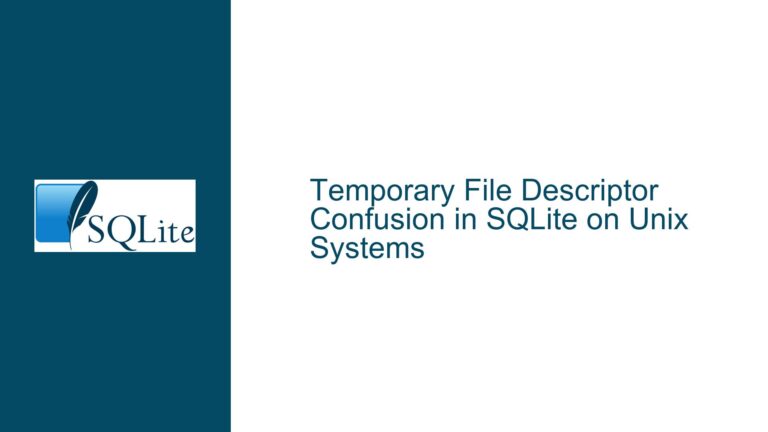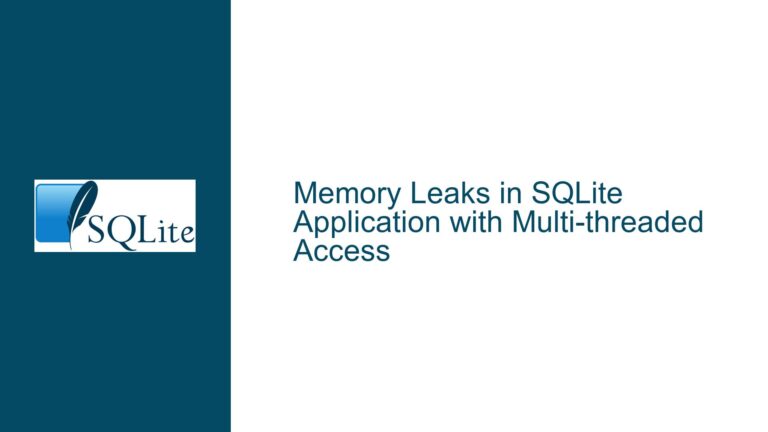Resolving SQLite CLI Continuation Prompt and Delimiter Tracking Issues
Persistent Continuation Prompts Due to Unclosed Lexical Constructs Issue Overview When working with the SQLite Command-Line Interface (CLI), users often encounter a scenario where the continuation prompt (…> ) persists even after they believe they have closed all lexical constructs (e.g., string literals, parentheses, brackets, or comments). This occurs because the CLI’s input parser detects…
